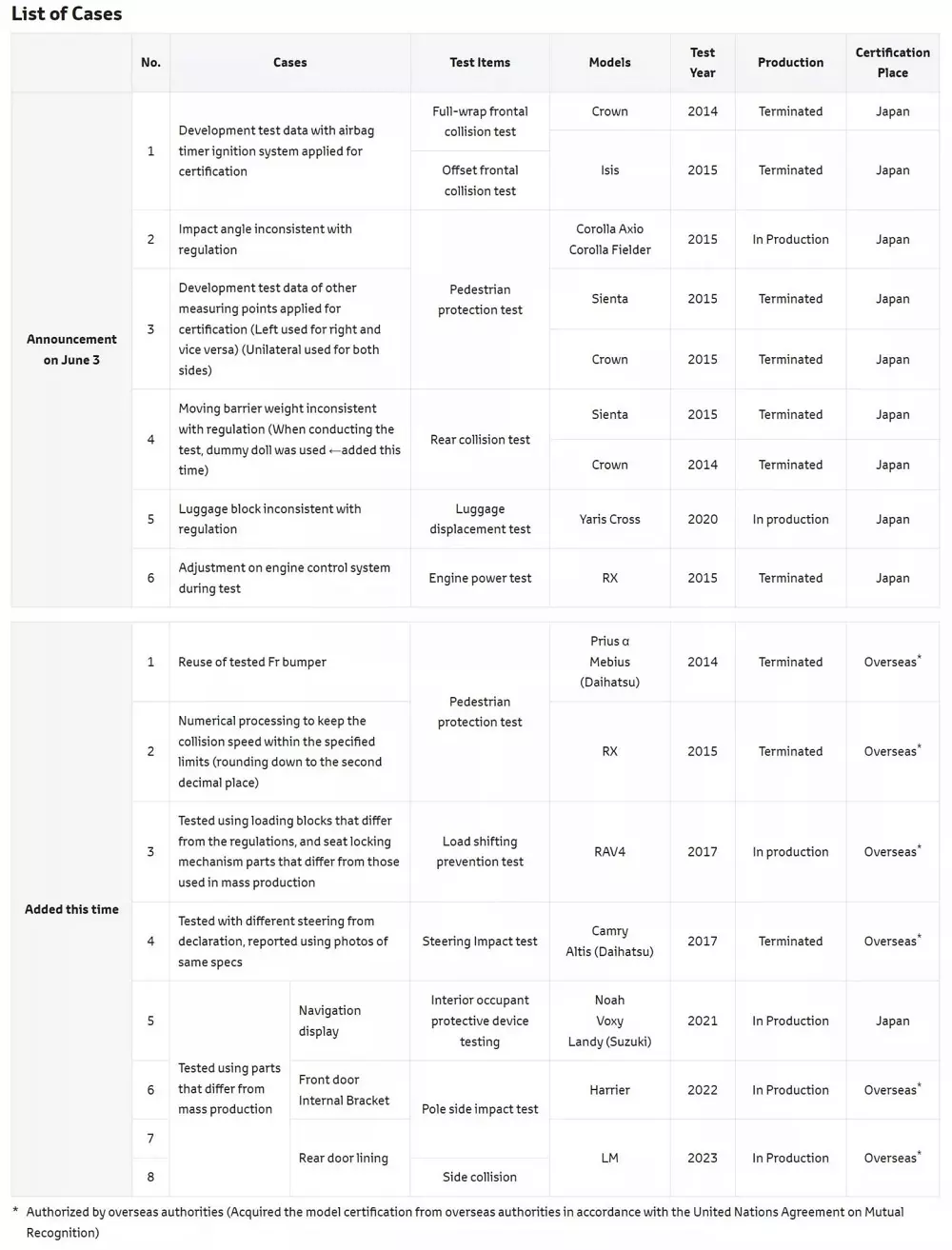Toyota has been embroiled in a series of scandals involving automobile testing fraud. As of July 31, 2024, the scandal affecting the world’s best-selling car brand has widened.
Toyota admitted to safety testing fraud involving seven additional models. This admission came after Japan’s Ministry of Land, Infrastructure, Transport, and Tourism (MLIT) discovered further irregularities in their investigation. This latest revelation has cast an even darker shadow over not just Toyota but the entire Japanese automotive industry.
Specifically, the corporation violated regulations by removing navigation screens during occupant protection tests for three MPV models: the 2021 Toyota Noah, Toyota Voxy, and Suzuki Landy. Additionally, non-commercial parts were used in safety tests for the 2022 Toyota Harrier and Lexus LM. These parts included front door inner corner protectors for the Toyota Harrier and rear door liners for the Lexus LM.
Irregularities were also found in the type approval process for several models, including the Toyota Camry, Daihatsu Altis (2017), Toyota RAV4 (2017), Lexus RX (2015), Toyota Prius a, and Daihatsu Mebius (2014).

List of seven Toyota models with irregularities found during testing.
As many of the affected vehicles are intended for the international market or have been discontinued, Toyota assures current owners that they “do not need to stop using their vehicles.” However, production and delivery of the Toyota Noah and Voxy sold in Japan have been temporarily halted since July 29. Toyota aims to resume production “as soon as possible” after receiving confirmation of their compliance with standards from the authorities.
The company also announced that batches of the Toyota Corolla Fielder, Corolla Axio, and Yaris Cross intended for the Japanese market will be delivered in early September, pending MLIT confirmation of their compliance with standards. These models had previously been halted on June 3, contributing to a 13% decrease in Toyota’s global production volume in June 2024, which may impact second-quarter revenue.
Toyota attributed the recent safety testing scandal to a combination of on-site errors and management failures. The company has pledged to review its operations and improve its infrastructure with more accurate data management capabilities to prevent similar issues from occurring in the future.
“We regret that we were unable to carry out our certification activities properly. We apologize to all concerned for any concern or inconvenience this may have caused,” Toyota said in a statement.
The Japanese government has also demanded that Toyota implement “strong reforms” following the discovery of new violations in the certification procedures for the automaker’s vehicles.









































